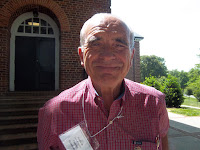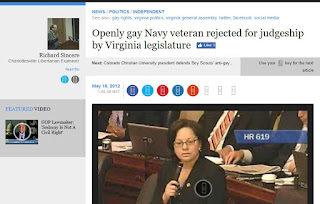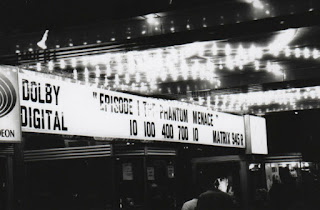From the Archives: World War II veteran Franklin Kameny remembers his experience with 'don't ask, don't tell'
World War II veteran Franklin Kameny remembers his experience with 'don't ask, don't tell'
May 30, 2010 2:49 PM MST
For many people, especially those born in the last decade of the 20th century, the idea of ending the ban on openly gay and lesbian Americans serving in the armed forces may seem to be a new one. Even older Americans may not have become aware of the issue any earlier than 1993, when Bill Clinton tried to end the ban but ended up signing the law that made it permanent.
The fact is, not only the ban but attempts to end it go back much farther than the early 1990s.
On May 5, the Charlottesville Libertarian Examiner interviewed Franklin Kameny, one of the pioneers of the modern gay rights movement, at the National Press Club in Washington.
Kameny, who celebrated his 85th birthday on May 21, cautioned, first, that we must “keep in mind” that the gay ban “became statutory law in ’93 [but] has been military policy for very, very, very much longer than that. You can arguably bring it all the way back to 1778 and George Washington.”
‘They Asked; I Didn’t Tell’
Kameny encountered the gay ban for the first time during World War II, when he enlisted in the U.S. Army.
“I personally ran into [the ban] on May 18, 1943, when a few days before my 18th birthday, I enlisted in the Army at the height of World War II,” Kameny said. “They asked; I didn’t tell, even though as a healthy, vigorous teenager there were things to tell. (Not terribly much, it was a different era in all kinds of ways.)”
Kameny added: “I have resented for 67 years that I had to lie in order to serve in a war effort that I strongly supported. I did serve and I saw combat in Europe.”
In 1957, Kameny – a Harvard-educated physicist and astronomer – was fired from his job with the Army Mapping Service because he was gay. He spent the next several decades in temporary jobs because he was unable to get a security clearance to do what he was trained to do. In fact, he said, there were some months when had only 20 cents to spend per day on food. (The story of Kameny's life during this period is told well by historian David K. Johnson in his 2004 book, The Lavender Scare: The Cold War Persecution of Gays and Lesbians in the Federal Government.)
Marching on the Pentagon
By 1961, however, he began to get involved in the then-fledgling gay rights movement. One of the first issues he and his colleagues tackled was the military gay ban.
“We picketed against it starting in ’65 both in front of the White House and at the Pentagon, and at the Pentagon again in ’66,” demonstrating, he said, “specifically against the exclusionary policy.”
Congressional Campaign
The issue also came up in 1971, when Kameny was the first openly gay person to run for a seat in the U.S. House of Representatives. (He ran for position of Delegate from the District of Columbia, a slot now filled by Eleanor Holmes Norton.)
“In the course of all that, I was campaigning on two different fronts,” Kameny explained. “One was purely on District issues; if you’re going to run for Congress in the District [of Columbia] you have to be an expert on trash collection and everything else.
“But also,” he continued, he was running “as a gay activist,” so that in the later part of the campaign, he held “a press conference in or near the office of the Secretary of the Army, and I met with him or somebody in his staff ... in connection with the gay ban.”
Two decades later, “in ’93, it became law, which completely changed the politics entirely.”
That politics will play out this summer when the U.S. Senate takes up the issue and will decide whether to follow the course set by the House or to let the gay ban linger for another year or longer.
Publisher's note: Today is the traditional date of Memorial Day, as it began in the years after the Civil War and was commemorated until the late 1960s, when it was moved to the last Monday in May.
This article is drawn from my Examiner.com archives. It was originally published on Examiner.com on May 30, 2010. The Examiner.com publishing platform was discontinued July 1, 2016, and its web site went dark on or about July 10, 2016. I am republishing this piece in an effort to preserve it and all my other contributions to Examiner.com since April 6, 2010. It is reposted here without most of the internal links that were in the original.




















